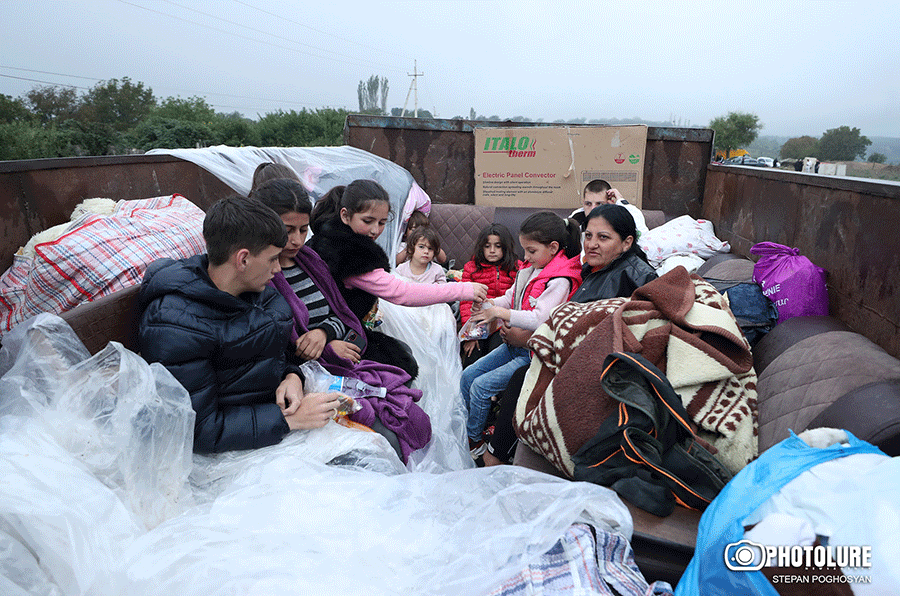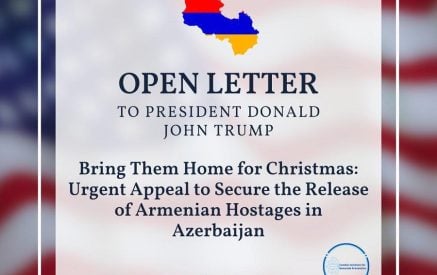The world celebrated World Peace Day, also known as the International Day of Peace, on September 21st. Unfortunately, this year’s celebration coincided with what Armenians are calling the Second Armenian Genocide, that is, the invasion of the majority Armenian Republic of Artsakh by the Azerbaijan military on 19 September, which has been followed by the terrorization of the Armenian inhabitants and their desire to leave Artsakh for safety in Armenia.
This catastrophe, which we believe constitutes genocide, could have been avoided, but unfortunately the Western world ignored over two years of warnings from the Lemkin Institute, Genocide Watch, the International Association of Genocide Scholars, former ICC chief prosecutor Luis Moreno Ocampo, and many others. Experts were in virtual consensus about the threat of genocide against Armenians in Artsakh and predicated with accuracy what has come to pass. But the West’s strategic and resource interests in Azerbaijan and Turkey, as well as the Ukraine war, stood in the way of any clear thinking or effective action. Through its relentless pressure on Armenia to engage in “peace negotiations” with a state (Azerbaijan) that harbors genocidal aims against it, Western powers gave a green light the extremist Aliyev regime in Baku and emboldened not just Azerbaijan, but also Turkey and Russia, the latter of which increasingly sees its interests being served by closer relations with Azerbaijan and Turkey.
The 19 September invasion was the consequence of the impunity that the Western powers granted to Azerbaijan. For nine months Azerbaijan blockaded Artsakh, restricting the flow of goods and people between Artsakh and the outside world. On June 15, 2023, Azerbaijan imposed a total siege, allowing no humanitarian supplies to reach Armenians in Artsakh. The Armenians in Artsakh were on the brink of death by starvation. But the world continued to engage with Azerbaijan as a legitimate partner and trustworthy negotiator as it was committing genocide by attrition.
As predicted by prevention experts, the Azerbaijan army, finding itself entirely unhindered by international institutions, finally invaded Artsakh on 19 September and committed atrocities that are now being documented by human rights organizations on the ground in Armenia. As in 2016, 2020, and 2022, Armenians who have fallen into the hands of the Azerbaijani military have apparently been treated with maximal cruelty. We will understand the full horror of this genocide once the Armenians of Artsakh are able to flee — until September 25 they were being refused any exit routes and therefore were being held hostage by Azerbaijan without food, water, gas or electricity. Today was the first day that some Artsakh Armenians were allowed to pass through the Lachin corridor to safety in Armenia.The entire population is expected to flee out of fear after three years of unmitigated atrocity crimes committed by Azerbaijan.
Read also
The destabilizing ripple effect of this avoidable disaster should not be underestimated. Azerbaijan and Turkey are already making clear that they intend to force Armenia to give them control over a corridor that runs through the southern Syunik region of Armenia–and they are threatening Armenia with war if Armenia refuses.
The so-called “Zangezur Corridor” would cut Armenia off from its important trading partner to the south (Iran) and would compromise Armenian sovereignty in favor of two countries whose leaders have gone on record many times asserting their desire to wipe Armenia off of the map and Armenians off of the earth. A war in the South Caucasus has a very high risk of drawing in regional and global powers (especially Iran, Israel, Russia, and NATO).
Apart from the risk of destabilization in the South Caucasus and the opening of a possible second front in the Ukraine war, the genocide in Artsakh threatens to undermine the key principles of the current world order: self-determination, equal sovereignty, and human rights. Over the past two years Azerbaijan has challenged the Western world to live up to its stated principles and has challenged the United Nations to defend its Charter and international law. The world powers’ tacit approval of Aliyev’s expansionism is a blow to multilateralism and has signaled to petty dictators all over the world that the new world order will be governed by “might makes right.” In the absence of visible commitment to multilateralism, we will see the peace of the graveyard not only in Artsakh, but also in many other conflict zones as well.
The Lemkin Institute is dismayed by the failure of the international community, particularly the European Union and the United States, to devise policies that would contain the existential threat posed by the Aliyev regime to the Armenians of Artsakh. By pursuing a “peace” process based on false premises, they ended up setting the stage for genocide — and they were warned about this by many individuals and NGOs with expertise in prevention.
This disaster has convinced us that our genocide prevention mechanisms, young as they are, are already broken. The Lemkin Institute therefore must strengthen its pursuit of new avenues of prevention that involve the engagement of the global grassroots to pressure our current governments, leaders, and institutions to prioritize and mainstream genocide prevention in everything that they do. We believe it is in the self-interest of the human species to do this, especially in the coming years as we face the increasingly challenging consequences of global warming.


























































